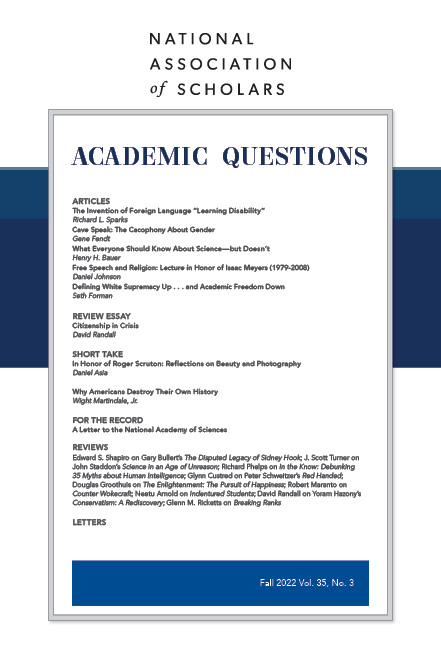Editor's note: The following letter from scientists Edward J. Calabrese, of the University of Massachusetts-Amherst, and James Giordano, of Georgetown University Medical Center, to Marcia McNutt, president of the National Academy of Sciences (NAS), represents the culmination of recently published research1 documenting the scientific deception surrounding the adoption of the “Linear No-Threshold” precept that has dictated public health policy since the 1950s. The LNT model refers to the means by which drugs and other chemicals and physical agents, like radiation, affect biological systems, and assumes that the response is directly proportional to the dose. In other words, the LNT model says that there is no amount of radiation too small to be dangerous to humans. By contrast, the “threshold dose-response” model, dominant before the 1950s, assumes that there is a safe level of exposure as long as the exposure is below the threshold dose. In 1956, despite research backing the efficacy of the “threshold dose-response” model, the LNT model was recommended in a report to the public by the Biological Effects of Atomic Radiation (BEAR) Committee of the NAS and became the basis for today’s massive environmental and health regulatory apparatus. This report was not written or reviewed by the BEAR Genetics Panel, several members of which were opposed to the report.
In his winter 2017 article in Academic Questions (“Societal Threats from Ideologically Driven Science”) Calabrese documented how the LNT model was pushed through the BEAR I Committee by several key scientists who deliberately suppressed research contradicting it and ignored BEAR Genetics Panel scientists who disagreed with the approach. The letter below requests that the NAS acknowledge this subterfuge and retract the paper upon which the finding was based.
July 29, 2022
Marcia McNutt
President, NAS
500 Fifth Street
Washington DC 20001
Dear Dr. McNutt:
Our recently published paper (see attached) presents convincing evidence that the NAS Report to the Public by the BEAR 1 Genetics Panel in 1956 (1) was not written by the Panel, and (2) was not reviewed or approved by the Panel.
Yet, the report was represented as being the work and product of the Panel and thus reflective and communicative of their views. Letters by four of the Panelists confirm this perspective, while also expressing scientific concerns, not least of which was that the report contained serious errors. The report was hailed by the media as being the assessment of a Dream team of subject matter expertise and knowledge, and therefore was information provided by a Panel and process that the country could trust.
The letter by Muller, in which he stated explicit complaints was provided to the entire Panel, keeping all informed of these concerns, and of his threat to resign from the Panel unless such unethical representations were noted and stopped.
Despite this, neither the National Academies of Science (NAS), or the Panel members corrected the situation. In fact, the misrepresentation of Panel authorship was sustained by both the NAS and the Panel, and was never brought to light; until now.
This Report to the Public has had major influence on cancer risk assessment and the adoption of the public health policy directing US regulatory practices, and those of many other nations worldwide. We have called for the retraction of this paper by the NAS, as based upon the documentation and reasoning provided in the paper. We assert that the evidence is clear: the Panel did not write the Report to The Public.
Therefore, we argue that this must be acknowledged by the NAS, and the report must be retracted.
Sincerely,
Edward J. Calabrese, Ph.D.
University of Massachusetts
Amherst, MA
James Giordano, Ph.D.
Georgetown University Medical Center
Washington, DC
1 Edward J. Calabrese, James Giordano, “Ethical Issues in the US 1956 National Academy of Sciences BEAR I Genetics Panel Report to the Public,” Health Physics Society 123, no. 0 (2022), www.health-physics.com.













